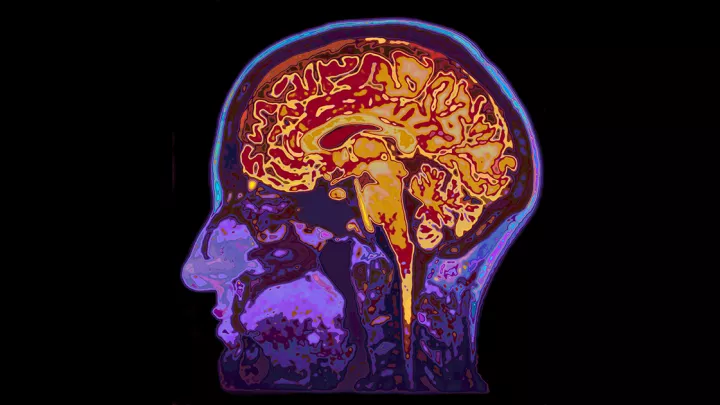Can viral infections lead to neurological disorders?

We've known that viral infections can be associated with neurological disorders for years. Some of the most common neuro-related diseases caused by viral infections include measles, meningitis, post-infectious encephalomyelitis, subacute sclerosing panencephalitis, chickenpox and polio. Fortunately, these conditions are now rare or nearly nonexistent, thanks to routine immunizations.
The development of neurological disorders related to viral infections still occurs, however. Why some viral infections are associated with neurological conditions is complex and still under intense research.
"Even today, our knowledge of viruses is limited, knowing that we are surrounded by so many viruses that we don't even know about," says Rana Zabad, MD, Nebraska Medicine neurologist. "It is important to note that besides vaccines that are known to decrease the risk of acquiring an infection, there is no specific measure to prevent the progression to a neurological disorder. Additionally, we still don't know why some people will develop neurological issues after contracting a virus, and some don't. But we think that those who do may be genetically predisposed."
A common virus that is known to affect 90 to 95% of the population worldwide and may increase a person's risk for multiple sclerosis is the Epstein-Barr infection. A recent study by the National Institutes for Health found that individuals who contracted Epstein-Barr that progressed to infectious mononucleosis sometime during their lives were 32 times more likely to develop MS.
"While almost everyone acquires Epstein-Barr, most people are asymptomatic," says Dr. Zabad. "Only a small fraction of people will go on to develop infectious mononucleosis, also known as mono, that is caused by the Epstein-Barr virus. Mono typically occurs in individuals who acquire the virus later in adolescence or young adulthood."
In addition to MS, cases of Epstein-Barr that progress to mono, are also associated with other inflammatory neurologic disorders in children and adults such as Guillain-Barré syndrome, transverse myelitis, encephalitis, meningitis and cranial nerve palsies such as Bell's palsy, notes Dr. Zabad. While these are all treatable conditions, they may leave the affected person with limitations.
There are several mechanisms that occur during a viral infection that may be associated with progression to neurological disorders.
When viruses and microorganisms invade the body, they can infect various organs and cause mild problems to more severe illnesses. Sometimes these viruses can directly invade the nervous system, such as is the case with meningitis or encephalitis.
"This direct infection may generate an inflammatory response throughout the body that can be further damaging," explains Dr. Zabad. "A current example is COVID-19, which can cause an inflammatory response that is responsible for clotting disorders that have led to strokes."
There is also an indirect effect that may occur in predisposed people. This is called molecular mimicry. Following the viral infection, molecules are left behind similar to those found in the body and nervous system. In some cases, the immune system may become confused and mistakenly attack similar molecules in the healthy nervous system.
"The scientific community is one step forward in understanding one of the many, yet important factors that might associate neurological disorders with viral infections," says Dr. Zabad.
To schedule an appointment with one of our neurologists or other specialists, call 800.922.0000.







